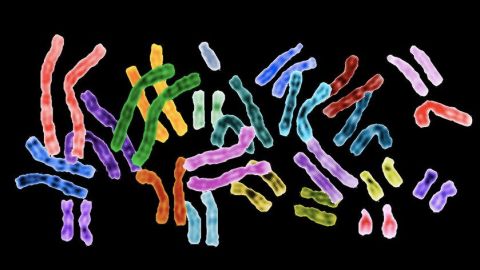Is Alzheimer’s Disease Genetic?

Researchers have identified a set of genes that lead to Alzheimer’s disease by studying a small patient group with a rare, inherited, early-onset type of the disease. Only about 3% of all Alzheimer’s patients are in this subgroup in which pronounced genetic factors cause the disease. Dr. Leonard Guarente, who studies aging at MIT, says that leveraging what is learned from this select 3% may help to yield treatments for everyone with the disease.
“We can’t really do anything about our genes,” says Guarente, “but genetics clues us in on what the players are that are important in a disease.” Knowing these players is a step toward more effective treatments, he says. Three of the genes that have a role in Alzheimer’s disease are:
Alzheimer’s disease often occurs in parallel with other diseases and disorders, and understanding these genes has, in part, helped to explained the concurrence. “Patients with Down Syndrome which have a definite genetic abnormality, all of them will have at least pathological Alzheimer’s disease,” says Dr. Juan Troncoso, director of the Brain Resource Center at Johns Hopkins Hospital. The link, he says, is the APP gene, which resides on the segment of the same chromosome that is extra in patients with Down Syndrome. Such a finding “supports the hypothesis that the APP and the amyloid is a triggering factor in [Alzheimer’s] disease,” he says.
The views expressed here are solely those of the participants, and do not represent the views of Big Think or its sponsors.





